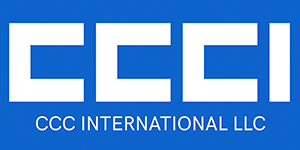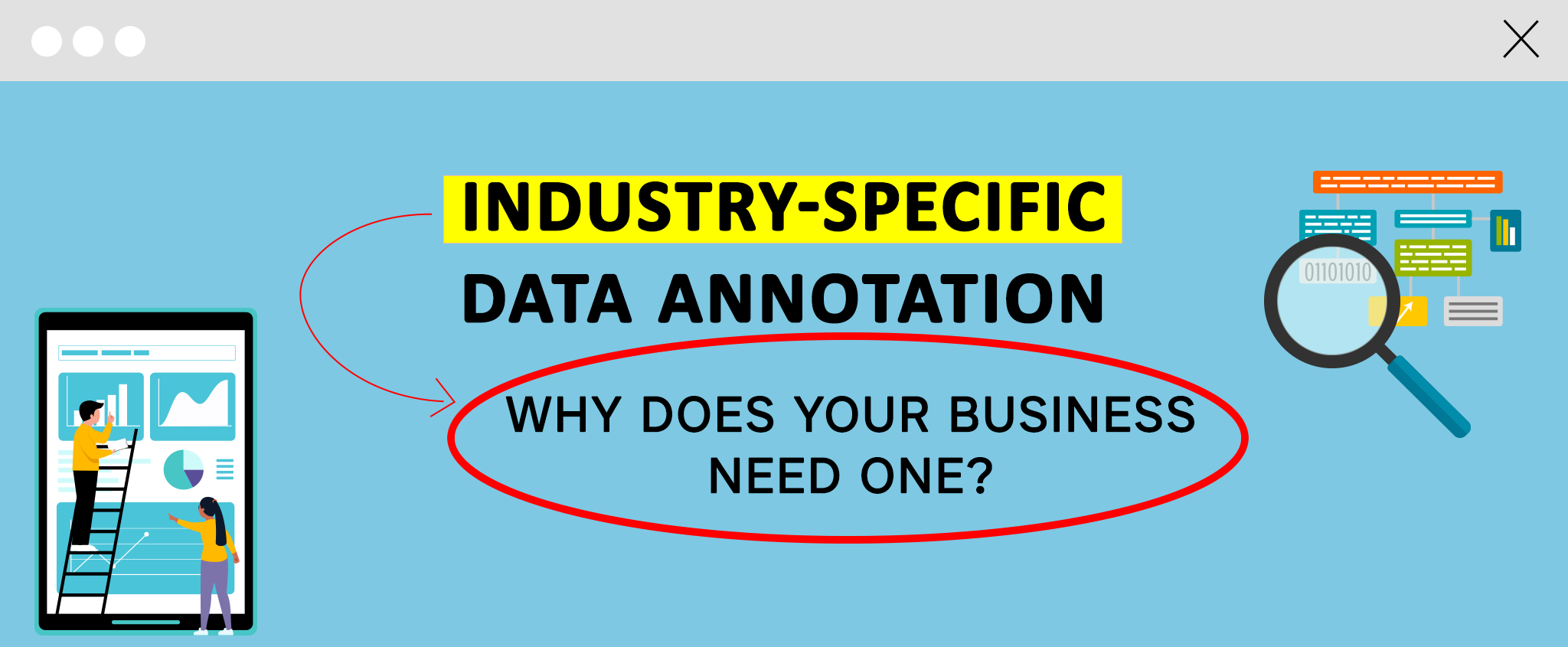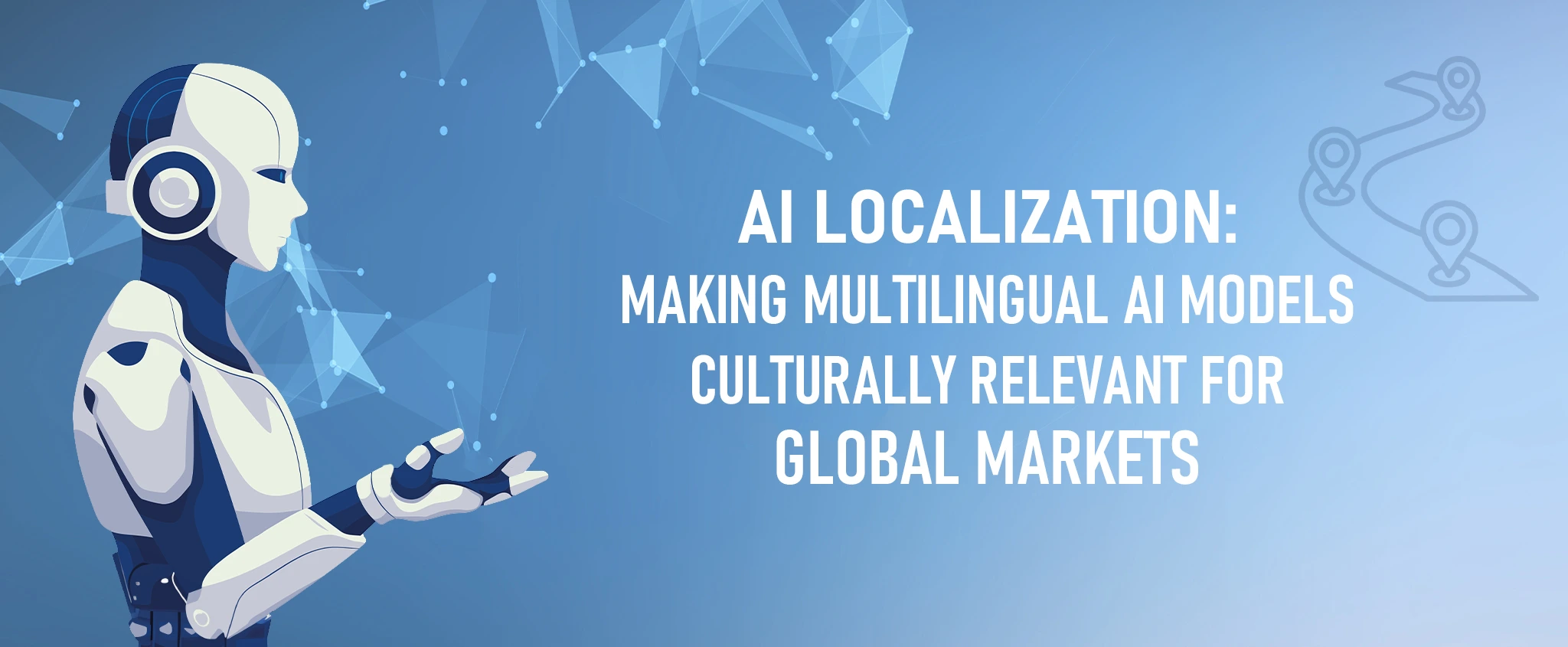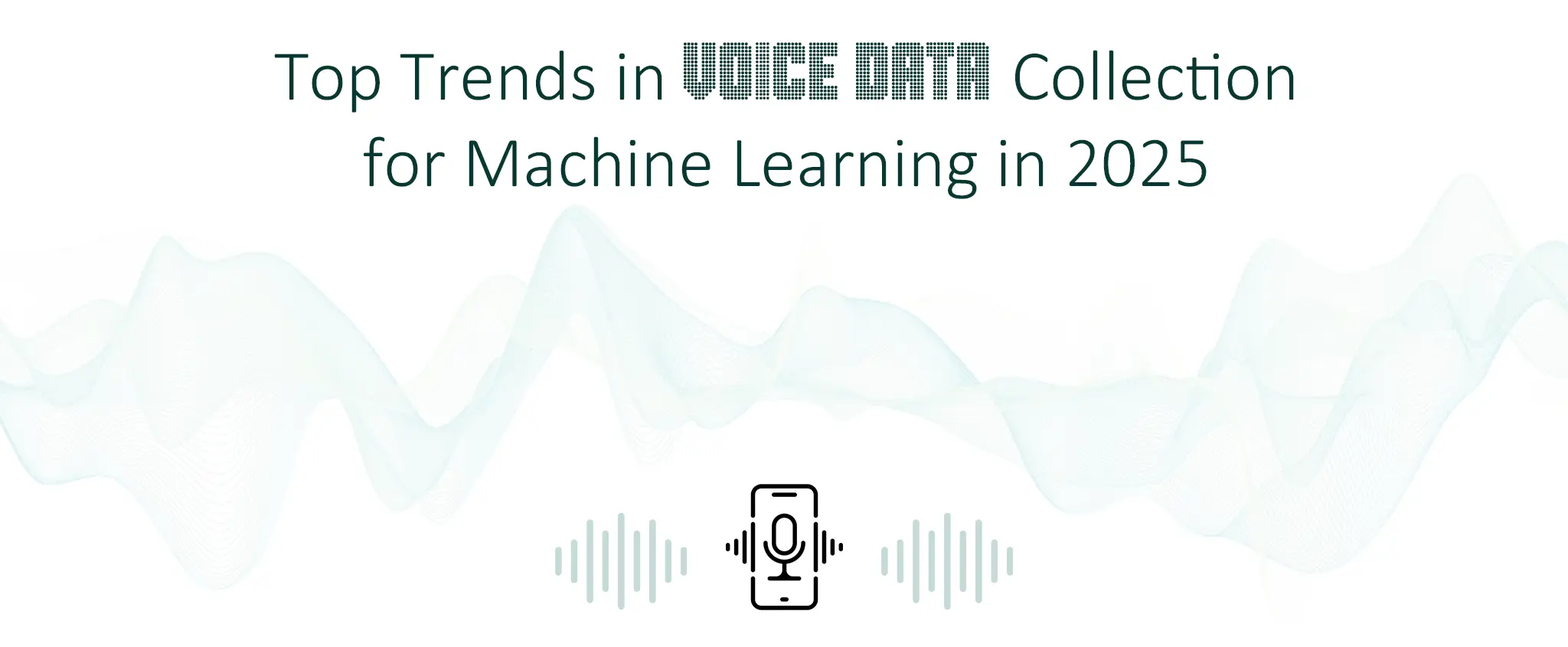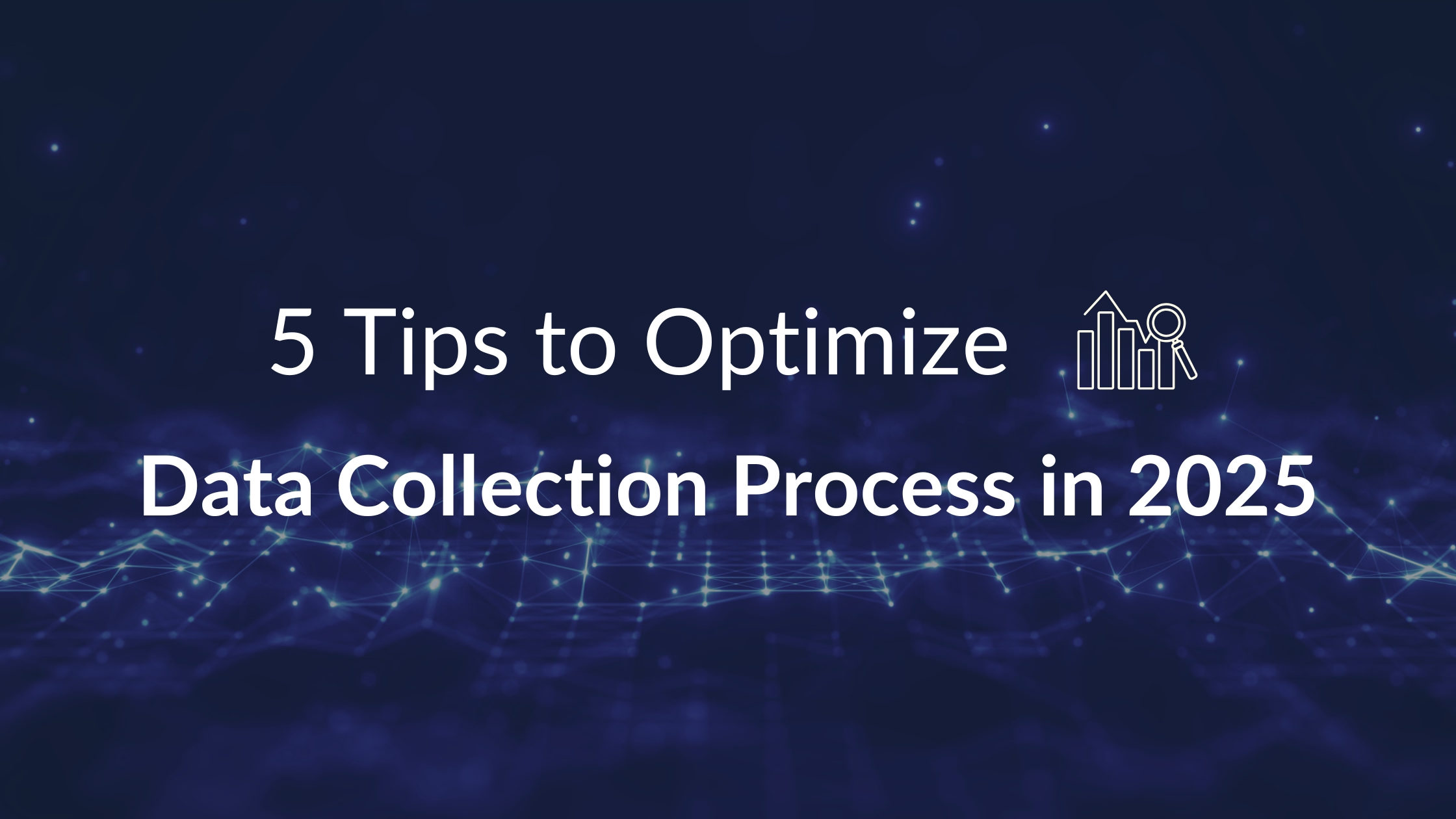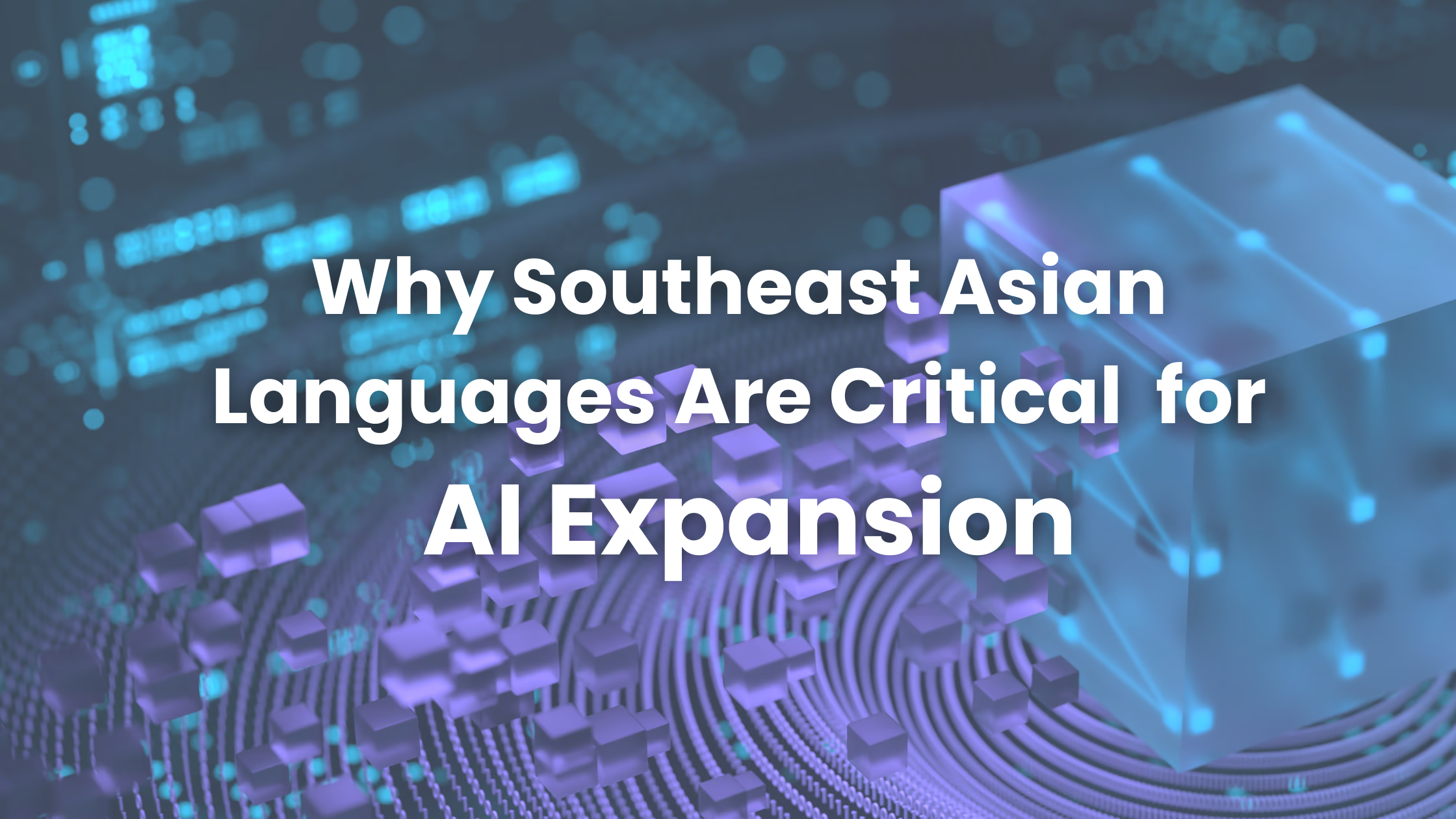Industry-Specific Data Annotation. Why does your business need one?
The many advancements in technology have impacted not only how businesses collect data but also the way they must utilize it. Data collection has always been necessary for most businesses; however, what has changed is the need for industry-specific data annotation. You’ve probably heard of it before, haven’t looked into it, or need help finding the right data annotation company for your business. In this article, CCC International will guide you through this digital age conundrum!
Key Takeaways:
- Data collection has always been necessary for most businesses, but industry-specific data annotation is the new way to utilize the collected data. It collects, labels, and analyzes data associated with a specific industry. It can be for medical, retail, finance, automotive, industrial, or any other sector.
- A professional data annotation company can offer multimedia data annotation to help businesses from different industries create highly accurate datasets.
- Data annotation has various types: text, image, video, and audio. Speech-to-text transcription and speech data collection are also vital services. Other types include text categorization, phrase chunking, image classification, and semantic annotation.
Table of Content:
- What is Data Annotation?
- Types of Data Annotations
- Industry-Specific Data Annotation
- The Benefits of Data Annotation
- CCCI-Professional Data Annotation Service Provider
What is Data Annotation?
Data annotation is simply the process of collecting data and adding labels or tags to it to make it easier for a computer system to understand. Unlike the human brain, computers need visual information presented in a way they can understand. Data annotation ensures this is done. It helps create meaningful collection of data that we can use for various tasks, such as machine learning and data analysis.
We see the products of data annotation in various industries, such as automotive, logistics, health care, education, and more. For example, a data annotation agency annotates car images, allowing the computer system to identify and distinguish different types of vehicles. As a result, the system can easily detect which cars are parked in a parking lot and even provide information about their make and model.
A speech-to-text transcription is also a form of data annotation. You annotate audio or video recordings, making it easier for computers to transcribe spoken words accurately. Data annotation has helped businesses and organizations reduce costs, increase efficiency, improve accuracy, and make better decisions.
Types of Data Annotations
There are different types of data annotation because each data set requires its unique tag. For instance, image annotation is used to draw boundary boxes around objects and classify them according to specific labels. In contrast, text annotation is used to tag, classify, and search for particular words or phrases in an article. Multimedia data annotation includes audio and video annotation, which detects objects and classifies them according to audio or visual labels.
Text Annotation
Text annotation is a form of data annotation used to classify text such as books, articles, and web pages. It helps computers identify specific words or phrases in the text, allowing them to find data faster and more accurately.
Note: Text annotation has many annotations, including sentiment, intent, and named entity. Sentiment assesses opinions, emotions, and attitudes, while intent extracts user intent. Named entity annotation has Named Entity Recognition (NER) systems that require a large amount of manually annotated training data.
Audio Annotation
Audio annotation is a form of data annotation used to detect and classify audio or speech signals. It helps computers identify and recognize objects in the audio stream, such as words and phrases. For example, a data annotation agency can use audio annotation to create speech data collection for voice recognition systems.
Image Annotation
Image annotation draws boundary boxes and classifies objects in images. It helps computers identify objects more accurately, allowing them to perform object detection and classification tasks.
Video Annotation
Video annotation detects and classifies objects in videos. It helps computers identify objects in the video stream, such as faces, objects, and movements. Video annotation is also used for automated video editing and summarization.
Note: Other types of data annotation include text categorization, phrase chunking, image classification, and more. Semantic annotation is also standard, which trains algorithms to recognize and improve overall search relevance.
Industry-Specific Data Annotation
If we look at the applications of data annotation, we can see that we use it in various industries. Industry-specific data annotation focuses on annotating data for a particular purpose, such as automotive, logistics, health care, education, and more. As said by AI Multiple:
“Each industry uses data annotation differently. Some industries use one type of annotation, and others use a combination to annotate their data.”
Examples of data annotation for specific industries include the following:
- Medical Data Annotation: Used to label and classify medical images, such as CT scans, MRIs, and X-rays. This technology helps doctors make better and faster diagnoses.
- Retail Data Annotation: Labels images of products for product recognition and classification. As a result, retailers can better understand their customers.
- Finance Data Annotation: Detects financial fraud and classifies documents for improved compliance.
Pro Tip: Data annotation is crucial to many industries. In a world where technology has become increasingly important, businesses need professional data annotation to improve accuracy and efficiency. Only work with a data annotation service provider specializing in data annotation for specific industries to get the best results.
- Automotive Data Annotation: Labels and classifies data for autonomous vehicles. It helps self-driving cars detect objects in their environment and make decisions safely.
- Industrial Data Annotation: Labelling images and data for industrial equipment maintenance and safety.
Data annotation has a different impact on every industry. Therefore, every industry should consider its organization’s specific data annotation needs. Generally, data annotation is groundbreaking, but industry-specific data annotation takes businesses a step further.
The Benefits of Data Annotation
Technology this innovative is an investment. To some companies, especially the ones just starting, the technology can be too expensive. But for others, the value of data makes it worth the budget. Regardless of cost, data annotation is a must these days. Here are the benefits of investing in an industry-specific data annotation:
? Accurate Machine Learning Models
Collection and annotation of data help machines learn faster and more accurately. They significantly increase the accuracy of your machine learning models and, consequently, your business performance.
? Better Understanding of Data and Decision-Making
Data annotation also helps businesses better understand their data. It can help you identify patterns, trends, and correlations from specific datasets. This way, you can develop your strategies for the collection and annotation of data for better results.
? Better User Experience
The technology offers a better user experience by helping you accurately identify, categorize, and interpret data. It enables you to deliver more accurate and personalized results to your customers.
? Better Training Data
Data annotation specific to the industry also helps you create more accurate training datasets. It allows machines to train faster and more accurately, driving better results and performance.
? Increased Scalability
Finally, data annotation for specific industries helps you scale easily. The technology enables you to manage large, complex datasets quickly and accurately, allowing you to grow your business efficiently.
Overall, data annotation gives you five business advantages:
- Cost Savings
- Expertise Access
- Scalability
- Flexibility
- Quality
Data annotation that is specific to the industry is an excellent way for companies to leverage technology. You know the competition is fierce, and customers are more demanding than ever. The technology helps you deliver better results faster and in a cost-effective way. And if you have no idea how to go about it, look for a reliable company that can ease your data annotation process.
Like you, CCCI knows the value of data. Without data, we won’t know what decisions to take or how to predict customer behavior. Data annotation is the key to unlocking insights, allowing us to provide better customer services and products!
CCCI-Professional Data Annotation Service Provider
CCCI is a professional data annotation service provider, providing data services for different industries. As data collection and reporting experts, we provide comprehensive data annotation services that help businesses improve their analysis and understanding of data. Our technology-driven processes enable you to quickly and accurately annotate data, allowing you to develop more accurate machine-learning models!
CCCI collects data from websites, social media, and other online sources. We do our best to understand your industry-specific needs and requirements, ensuring you get the data annotation you need. Our services are rooted in the expertise of our data team and the cutting-edge tools we use. And because we know how valuable data is, we also give you a competitive edge by providing accurate data faster!
Industry-specific data annotation is the answer for businesses looking to leverage data and make better-informed decisions. With its range of advantages, from cost savings to access to expertise, data annotation is undoubtedly the way of the future.
Is your business ready for comprehensive and reliable data annotation services? CCCI can help you make sense of your data and take your business to the next level. Contact us today, and let’s get started!
